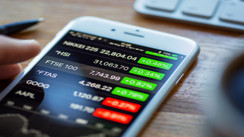Introduction: The Joy and Mystery of Collecting Autographs
There's something truly exhilarating about meeting a beloved celebrity, whether they're a chart-topping musician, a revered athlete, or a silver-screen icon. Often, the highlight of these encounters is capturing their autograph - a personalized memento of the meeting. Over time, one might start to ponder if this cherished keepsake could actually be a potential goldmine. However, it's crucial to understand that not all autographs evolve into valuable commodity. The worth of an autograph, apart from its sentimental significance, is influenced by a variety of factors, including the medium that bears the signature.
Unfolding the Factors that Influence Autograph Value
While each autograph tells a unique tale, not every signature ascends to the realm of a treasured, high-value item. There are, however, several determining aspects that could enhance the worth of an autograph.
1. The Condition of the Signature
The first determinant of value is the condition of the signature. A clean, clear, and legible autograph often has more appeal and thus, more potential value. Even if the handwriting is difficult to interpret, the signature may still possess some worth if it's identifiable as the person's distinctive autograph. However, any stains, smudges or signs of wear that obstruct the signature, rendering it difficult to verify, could significantly reduce its potential value.
2. The Material of the Autographed Item
Another key factor is the medium that carries the autograph. A signature etched casually on a piece of paper or tucked inside an autograph book might not hold as much monetary value as those inscribed on unique items closely related to the celebrity's life or career. For example, a baseball or bat graced with the autograph of a Hall of Fame player, or an award-winning movie script bearing the signature of its starring actor, would likely be more valuable than a simple paper signature.
3. The Rarity of the Autograph
Like all cherished collectibles, the rarer an autograph is, the more value it is likely to hold. A hard-to-come-by signature, which is limited in supply but highly sought after, can command a premium price. On the other hand, if the celebrity is generous with their autographs, the value could potentially decrease due to a flooded market.
4. The Demand for the Autographs
The potential value of an autograph is also dictated by its demand among collectors. A signature that many enthusiasts covet will generally hold more value. But remember, popularity can be fickle. An autograph may lose its value if the celebrity falls out of favor, reducing the demand for their signature.
Realizing the Monetary Value of Autographed Collectibles
The value of autographs can vary greatly, largely hinging on what an enthusiast is ready to pay for it. Say, for instance, you have a rookie baseball card signed by a Hall of Fame player like Chipper Jones, it might garner a considerable sum on platforms like eBay. To gain a clearer idea of potential worth, it could be beneficial to investigate with prestigious auction houses known for dealing with high-value items. Furthermore, professional appraisers specializing in autographed memorabilia can offer useful estimates of potential value.
Navigating the Process of Selling a Valuable Autograph
Selling a valuable autograph isn't just a simple transaction; it's about matching a cherished item with a collector who understands its worth. The platform you select to sell your autograph should align with its perceived value. For high-value items, partnering with esteemed auction houses could be advantageous. If the item possesses moderate value, you could consider enlisting the services of a reputable dealer or exploring online marketplaces like eBay or Facebook. It's essential to bear in mind that most platforms take a commission once the item is sold, so be prepared for this deduction.
Showcasing the Most Valuable Autographed Items in History
Over time, certain autographed items have fetched remarkable sums at auctions, validating the immense potential value of signatures. The most valuable autographs often come from influential figures in history, renowned athletes, or famous celebrities. To illustrate:
- George Washington’s personal copy of the U.S. Constitution, Bill of Rights, and Acts of the First Congress sold for a staggering $9.8 million in 2012.
- One of the remaining signed copies of Abraham Lincoln’s Emancipation Proclamation, formerly owned by Bobby Kennedy, fetched $3.7 million in 2010.
- An intriguing letter from Albert Einstein, documenting his religious beliefs, was auctioned for nearly $2.9 million in 2018.
- Babe Ruth’s contract with the New York Yankees was sold for an impressive $2.3 million in 2017.
Setting a Selling Price for Your Autograph
The selling price of an autograph ultimately depends on what a collector is prepared to pay for it. To establish a realistic selling price, consult with professionals at auction houses, appraisal services, or dealers who can offer an educated estimation of your autograph's worth. To truly comprehend the worth of your autograph, consider obtaining an appraisal by a certified professional. For a reasonable fee, they can provide an estimated value and offer insights into the item's authenticity.
The Ultimate Worth of an Autograph
The most valuable autographs typically share three key characteristics: they're in excellent condition, they're inscribed on an item of significance, and they're from a notable figure. The selling price is influenced by the demand for the autograph and the maximum amount a buyer is prepared to offer. If you believe you own an autograph of considerable value, it's wise to seek authentication from a professional at a reputable auction house or from a trusted appraiser.
To conclude, the factors contributing to an autograph's worth are multifaceted. The condition and medium of the signature certainly play a role, but the signature's rarity and the level of demand are crucial too. Above all, the most influential determinant of an autograph's value is who it belongs to.





